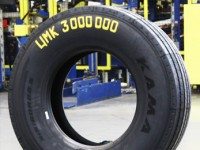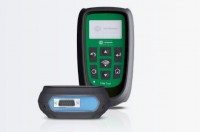Stapleton’s: Topping up profits makes sens[ors]
Puns aside, 1 November 2014 was a significant day for the UK tyre industry – and indeed for everyone who uses the roads – as it brought with it the legal requirement for all new vehicles produced and sold in Europe to be fitted with a TPMS (Tyre Pressure Monitoring System). And although these systems are hardly new – Stapleton’s suggests this legislation “heralds a quiet revolution that’s sure to have a dramatic impact on tyre retail and indeed the motor vehicle industry as a whole”.
“There’s no doubt that this is going to affect our customers in a pretty fundamental way – it is estimated by the end of the year that one in three vehicles on the UK’s roads will have some form of TPMS fitted. And when you consider the shocking figure of 1,200, which is the number of deaths every year that are attributed to incorrect tyre pressure, this has got to be a good move,” comments Nigel O’Hara, Stapleton’s Wholesale director. “But in our constant conversations with our retail partners, we found that more than a few viewed the change with trepidation – so we began some time ago developing a solution to ensure our customers were in a position to seize the opportunity this presents.”
The benefits of TPMS for the consumer are clear. But what’s in all this for the retailer other than the prospect of costly investment in new equipment, stock and staff training?
“Actually there’s a terrific opportunity here to boost profits. As of this January, new models of vehicles manufactured in 2012 with a defective TPMS will fail the MOT, so there’s a new revenue opportunity not just in selling replacement sensors, but also in servicing existing ones – that’s regular, ongoing and chargeable maintenance work” O’Hara explained adding: “But of course, you and your team have got to be up to speed with the technology – because if you can’t help a customer with their TPMS they’ll have no option but to take their business elsewhere.”
There are two basic types of TPMS – the indirect type uses the vehicle’s ABS (Anti-lock Brake System) and the ESC (Electronic Stability Control) to estimate the relative pressures of the tyres. The drawback of this system is that if all tyres are leaking at the same rate, it will detect no difference – and because the system is simply reset when a tyre is changed it doesn’t involve any extra work or training for the tyre retailer.
Direct systems, though, employ wheel-mounted sensors that transmit data directly to the vehicle’s dashboard, (this may differ depending which type of vehicle you drive) and activate a warning when any tyre’s pressure drops by at least 20 per cent (6 or 7psi). It’s these that offer the greatest challenge – and therefore the biggest profit opportunity – to the tyre retailer.
“We’ve done the research so our retail partners don’t have to, with this we’ve put together a comprehensive TPMS Starter Pack built around Autogem’s range of i-Sensor products, with whom we’ve developed a partnership for their outstanding all round knowledge of the TPMS market, product quality and overall market coverage. One i-Sensor can replace 97 per cent of the OE sensors in the market, and with professional training and technical support available to all retailers who purchase through Stapleton’s, the TPMS Starter Pack makes it efficient, affordable and pretty much effortless to get up to speed”.





Comments